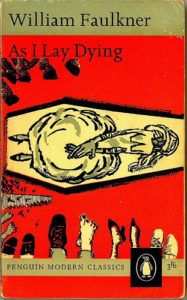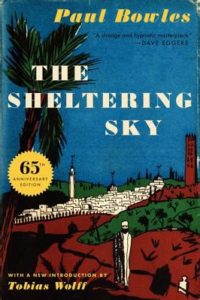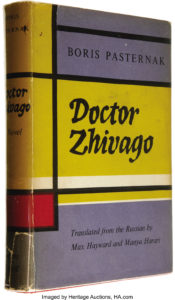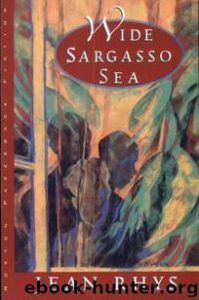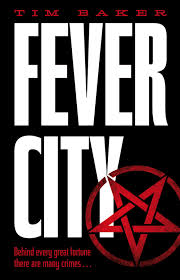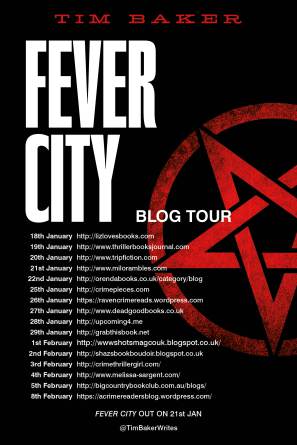Decades: Compiling the Ultimate Library with Tim Baker
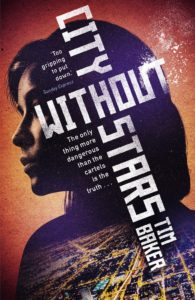 At the end of 2018 I collated my favourite books of the year. This is something I do every year, but in 2018 I gave the post the imaginative title of “Top Ten Reads of 2018” so it would be easily identifiable. On that list was a terrific book called City Without Stars. This book remains one of the best books I have read since Grab This Book launched in 2014 – I was utterly swept away by it at the time. So before today’s guest can share his recommendations I will nip in early and urge you to seek out City Without Stars. Just click the name and you will spring to a vendor who will sort you out with a copy!
At the end of 2018 I collated my favourite books of the year. This is something I do every year, but in 2018 I gave the post the imaginative title of “Top Ten Reads of 2018” so it would be easily identifiable. On that list was a terrific book called City Without Stars. This book remains one of the best books I have read since Grab This Book launched in 2014 – I was utterly swept away by it at the time. So before today’s guest can share his recommendations I will nip in early and urge you to seek out City Without Stars. Just click the name and you will spring to a vendor who will sort you out with a copy!
The reason I mention City Without Stars is that my Decades guest this week is Tim Baker, author of the aforementioned book, and as Tim is going to be discussing books written by other people I wanted to make sure I got my cheerleading in first.
This isn’t Tim’s only book and I want to give a second cheer for Fever City which I have also reviewed and which I also thoroughly recommend. You can catch all of Tim’s books here: https://www.amazon.co.uk/Tim-Baker/e/B018VPM0VM?ref=sr_ntt_srch_lnk_3&qid=1619117335&sr=8-3
If you are new to the Decades series I will recap why we are here.
I wanted to know which books would be added to the Ulitmate Library if you started with no books and built up a Library from scratch. How to choose which books should be included? I could not possibly undertake this task alone so I invite booklovers to nominate five books to be added to the Ultimate Library. To bring a degree of control to the process my guests must follow just two rules:
1 – Choose Any Five Books
2 – You May Only Choose One Book Per Decade From Any Five Consecutive Decades.
Now I turn you over to Tim Baker who will introduce his five selected titles and Tim has kindly provided the actual covers of the editions of the books he read.
DECADES

Born into a show business family in Sydney, Tim Baker travelled extensively around Australia and Europe before moving to Rome at the age of 23. He later lived in Madrid before settling in Paris, where he wrote about jazz and became a French citizen. He has published a collection of short stories, Out From the Past with William Collins and two novels, the JFK-themed neo-noir, Fever City and the epic crime novel, City Without Stars, both with Faber. He currently lives in the South of France with his wife, their son, and two rescue animals, a dog and a cat.
AS I LAY DYING, William Faulkner, 1930
“My mother is a fish.”
I discovered this novel in our municipal library in Campsie, western Sydney, when I was 15. Our family was on the ropes. One of my parents’ theatrical ventures was going south and we were about to lose our home. Not for the last time, I desperately needed the distraction and solace of a good book and picked up my first Faulkner. I read As I Lay Dying in one sitting. It changed my life.
THE SHELTERING SKY, Paul Bowles, 1949
“Reach out, pierce the fine fabric of the sheltering sky, take repose.”
Port and Kit Moresby are not your ordinary, well-to-do American expatriates, eschewing the Riviera for the unexplored, “more authentic” experience of North Africa. As his name suggests, Port is attracted to wilder shores, whether they be physical or emotional, and as the couple begins to push deeper into the desert, their voyage becomes a searing journey into the collective soul of a couple and the limits of shared love in the modern world. And then halfway through the novel, something tragic and extraordinary happens that takes your breath away, thrusting Kit into unimaginable territory. A devastating, unforgettable read.
DOCTOR ZHIVAGO, Boris Pasternak, 1958
“How wonderful to be alive, he thought, but why does it always hurt?”
What makes this novel so exceptional is the way it effortlessly inhabits two apparently contradictory worlds. One is a convincing and convulsive portrayal of a momentous moment in history – the turmoil, excitement and tragedy leading into and during the Russian Revolution, and the crushing despair that follows. The other is the poignant and intimate world of the two doomed lovers, Yuri and Lara, who must learn to live their brief, poetic moments together to the fullest, and to leave the rest to the meanderings of history and fate. The main themes of Zhivago, like all the other books in this selection, are our constant battle with despair and alienation, our sense of being both lonely and alone, and our desperate quest for the liberation of love.
WIDE SARGASSO SEA, Jean Rhys, 1966
“One day it all falls away and you are alone”
The creative audacity of Jean Rhys in taking Jean Eyre and turning it on its head with her creation of her protagonist, Antoinette Cosway/ Bertha Mason, is matched by her lush, insistent prose, haunted by the revenants of slavery, oppression, cruelty, injustice, magic and misogyny. The 1960s are often remembered for the bold flamboyance of its loud male authors – Mailer, Vidal, Vonnegut, Kesey et al – but this decade of post-colonial convulsion and women’s liberation found its most convincing voice in Rhys’ subversive masterpiece. A post-modernist classic that lingers like a guilty fever dream.
JR, William Gaddis, 1975
“—Money . . . ? in a voice that rustled.”
I can think of no other opening line that so brilliantly announces the theme of a book – in this case a blistering satire about America’s tortured self-enslavement to the almighty dollar. Long before The Bonfire of the Vanities, there was JR, the schoolboy/financial Wizard of Wall Street who can do no wrong so everyone else can do no right. Gaddis had been experimenting with writing plays in the three decades between his magnificent debut, The Recognitions and this, his second novel, and that work shines through in the book’s daring use of dialogue – multiple voices interposing different views, different lives, different lies – all cohering into a relentless but cohesive babble about bucks. Both horrifying and deeply funny, it remains the greatest fictional commentary on the insanity and insatiability of post-WWII capitalism.
My thanks to Tim. I think there can be little doubt there are some classics in the five which certainly should be included in every library.
If you want to see all the books which have been added to my Library so far then you can visit it here: https://grabthisbook.net/?p=5113
DECADES WILL RETURN
